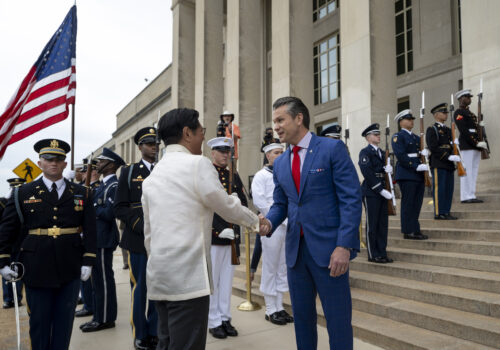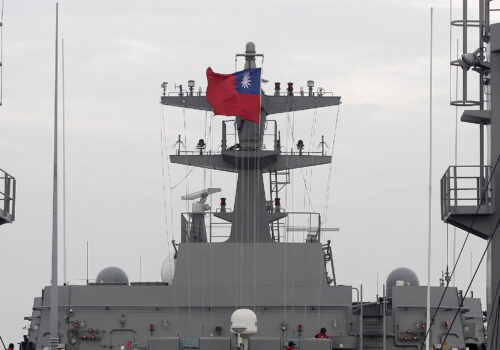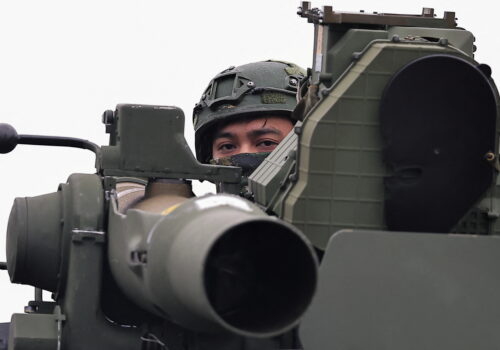What Taiwan can learn from China’s gray-zone actions against the Philippines
Bottom lines up front
- Drawing on the Philippines’ experience as Beijing attempts to physically dominate the South China Sea, Taiwan should: systematically document and expose airspace violations;
- Use a layered response including radio warnings, UAV monitoring, and selective interceptor deployment, instead of scrambling fighter jets for every incursion; and
- Lean on arms purchases, low-profile military training exchanges, deeper intelligence sharing, and diverse trade relationships to strengthen international ties.

Off the coast of the Philippines, China uses its coast guard forces, naval vessels, maritime militias, and other low-intensity methods to assert physical control and create “irreversible facts” in the South China Sea. These gray-zone operations enable Beijing to assert dominance in disputed maritime areas and secure strategic and economic interests while minimizing the international backlash that more direct military aggression could provoke.
China employs distinct tactics toward Taiwan—slow, persistent maritime incursions in the South China Sea challenge Philippine sovereignty and establish control, while high-speed aerial harassment in Taiwan’s Air Defense Identification Zone (ADIZ) delivers more aggressive messages. In its gray-zone operations aimed at Taiwan Beijing’s aims are to gradually erode Taiwan’s defense capabilities and political resolve to facilitate potential reunification.
Despite the differences, the Philippines’ responses to Chinese assertiveness offers lessons and policy recommendations that Taiwan can adopt to strengthen its resilience, sharpen deterrence, and counter China’s coercive tactics effectively. This new study by Chung-Yu Chou, a lieutenant colonel in the Taiwanese army, aims to derive practical insights from Manila’s experience that can inform Taiwan’s own strategic responses to ongoing Chinese pressure. Chou is a military instructor at the Taiwanese Army Command and Staff College and a visiting military fellow at the Atlantic Council’s Indo-Pacific Security Initiative.
The study’s results make clear that there is much Taiwan can do to create escalatory limits on Chinese action without triggering open conflict. High-profile joint drills, for instance, can be politically sensitive and provoke Beijing. Military training exchanges in which military officers and noncommissioned officers from unofficial partner nations including the United States, Japan, European countries, and others participate in professional military education and related training courses in Taiwan are lower profile but no less effective.
Deepening unofficial partnerships through arms purchases, strengthening intelligence sharing, and reducing economic dependence on China can also boost Taiwan’s military readiness—and its international support. Ultimately, sustained engagement in these areas is essential for Taiwan to mitigate China’s gray-zone coercion effectively.
View the full report
Related content
Explore the program

The Indo-Pacific Security Initiative (IPSI) informs and shapes the strategies, plans, and policies of the United States and its allies and partners to address the most important rising security challenges in the Indo-Pacific, including China’s growing threat to the international order and North Korea’s destabilizing nuclear weapons advancements. IPSI produces innovative analysis, conducts tabletop exercises, hosts public and private convenings, and engages with US, allied, and partner governments, militaries, media, other key private and public-sector stakeholders, and publics.
Image: Air Defense Forces guard Taiwan’s skies day and night on Day 5 of HK 41. Photo by Huang Yixiang/Youth Daily News, Ministry of National Defense



